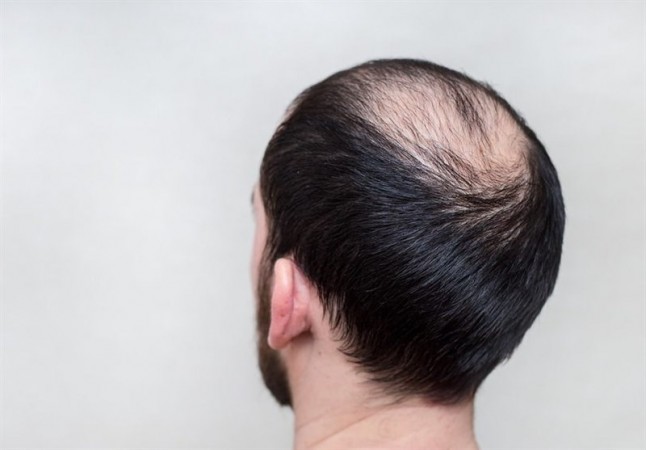
Hair loss is a common concern that many individuals face at some point in their lives. Whether you're noticing a few extra strands in your hairbrush or finding more hair than usual on your pillow, it's important to understand the difference between typical hair loss and unusual hair loss. In this article, we'll delve into the various aspects of hair loss, helping you determine whether your experience falls within the realm of normalcy or if it might be signaling an underlying issue.
Understanding the natural hair growth cycle is crucial in discerning whether your hair loss is normal or not. Hair goes through three main phases: the anagen (growth) phase, the catagen (transitional) phase, and the telogen (resting) phase. It's completely normal to shed around 50 to 100 hairs a day during the telogen phase as new hair prepares to grow in its place.
As we age, our hair naturally undergoes changes. It's not uncommon for hair to become thinner, finer, and to grow at a slower rate. While some hair loss is expected with aging, excessive or sudden hair loss should still be investigated.
Certain life events and circumstances can trigger temporary hair loss. These include childbirth, surgery, major illnesses, and extreme stress. This type of hair loss, known as telogen effluvium, is generally temporary and resolves as the body recovers.
Hereditary hair loss, or androgenetic alopecia, is one of the most common causes of hair loss in both men and women. If you have a family history of pattern baldness, it's more likely that your hair loss is related to genetics.
Your lifestyle plays a significant role in the health of your hair. A poor diet, lack of exercise, and high stress levels can contribute to hair loss. Ensuring you have a balanced diet rich in vitamins and minerals can promote healthy hair growth.
If you're experiencing hair loss that seems excessive, sudden, or is accompanied by other symptoms like itching, pain, or redness, it's important to consult a healthcare professional. These could be signs of an underlying medical condition that requires attention.
Certain medical conditions such as thyroid disorders, autoimmune diseases, and hormonal imbalances can lead to hair loss. If you suspect an underlying health issue, seeking medical advice can help identify and address the root cause.
Hair loss can have a significant emotional impact on individuals. It's normal to feel concerned, anxious, or even stressed about losing hair. Seeking support from friends, family, or a mental health professional can be beneficial in managing these emotions.
In the age of the internet, it's tempting to diagnose ourselves based on online information. However, self-diagnosis can lead to unnecessary worry or delay in seeking appropriate treatment. A qualified healthcare provider can provide accurate assessments.
If you're unsure whether your hair loss is typical or unusual, consulting a dermatologist or a healthcare provider specializing in hair health is recommended. They can perform a thorough evaluation, consider your medical history, and provide tailored advice based on your individual circumstances.
Depending on the cause of your hair loss, there are various treatment options available. These range from topical treatments and medications to hair restoration procedures. A healthcare provider can guide you in choosing the most suitable approach.
If your hair loss is determined to be a natural part of aging or a result of hereditary factors, embracing the change can be empowering. Many people find confidence in rocking new hairstyles or even going completely bald.
For individuals with hereditary hair loss, maintenance is key. Using gentle hair care products, avoiding tight hairstyles, and protecting your scalp from the sun can help preserve the hair you have.
Holistic approaches, such as acupuncture, herbal supplements, and scalp massages, are sometimes used to promote hair health. While these methods may not work for everyone, some individuals find them beneficial.
If you're experiencing hair loss, it's important to avoid harsh treatments that could further damage your hair and scalp. Overuse of styling tools, chemical treatments, and extensions can exacerbate the issue.
Hormonal changes, such as those that occur during pregnancy or menopause, can influence hair growth and loss. Understanding these changes can provide insights into the underlying causes of your hair loss.
If you're uncertain about a diagnosis or treatment plan, don't hesitate to seek a second opinion. Different healthcare providers may offer varying perspectives and recommendations.
Prioritizing your overall wellbeing can contribute to healthy hair. Getting regular exercise, managing stress, staying hydrated, and getting adequate sleep all play a part in hair health.
Rather than ignoring hair loss or hoping it will resolve on its own, taking a proactive approach by seeking professional advice can lead to better outcomes.
Lastly, remember that you're not alone in your experience. Many people face hair loss at some point in their lives, and there are support groups and communities where you can connect with others who understand what you're going through.
In conclusion, while hair loss can be concerning, it's important to differentiate between typical and unusual cases. By understanding the underlying factors and seeking professional guidance, you can take steps towards managing hair loss and maintaining your overall hair health.
Sleeplessness: Unraveling the Challenges of Insomnia and its Remedies through Yoga
Exploring Work Visa Options in Luxembourg for Indian Citizens
The Impact of Weight Gain on Longevity in the 40–50 Age Bracket